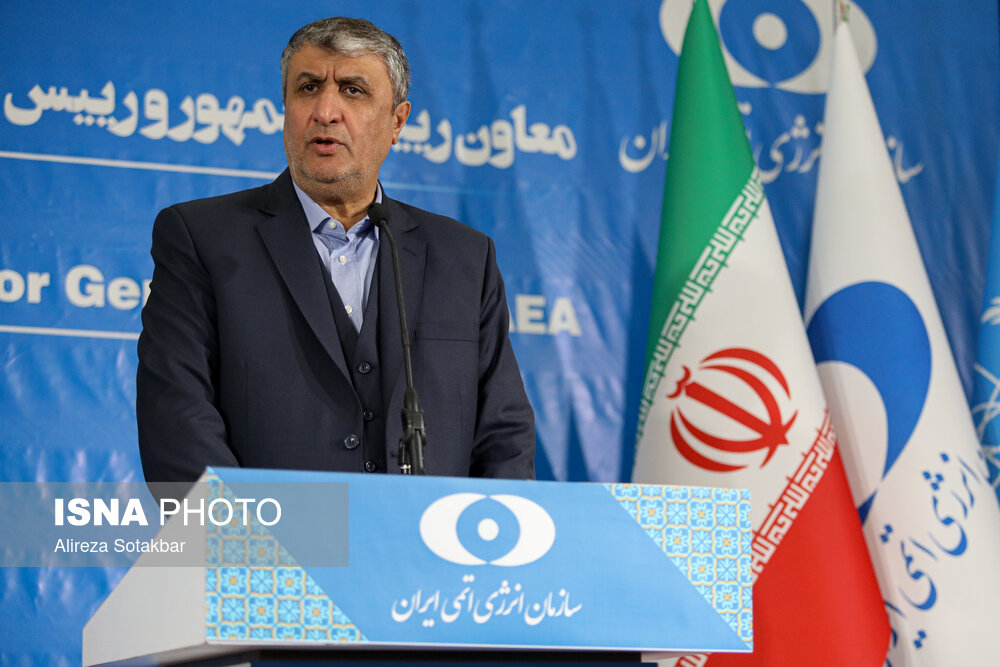Mohammad Eslami made the remarks in an event at Amirkabir University of Technology in Tehran on Tuesday as he praised the country’s achievements and continuous headway in the nuclear technology.
“We have a high standing in nuclear capacity; this high-level position has been achieved through efforts and is not borrowed or imported,” Eslami stated, adding, “We have attained this position via research and with sincere efforts of all those who have been there since the very beginning.”
Stressing that the AEOI has decided to eliminate the nuclear hype on Iran’s nuclear program, he criticized “the unfounded allegations” and the “propaganda campaign” aimed at limiting Iran’s nuclear work, which he said have caused skepticism about the costs and benefits of nuclear technology for the country.
He, however, said, efforts have been made to spend more time on main issues to elucidate the effects of nuclear technology in people’s life.
Pointing to the preparation of a strategic plan with a 20-year prospect and a program-oriented movement in the country’s nuclear technology, Eslami said that by following this plan, the country is seeking to increase its capacities both in research and the industrial field.
Iran’s nuclear chief also highlighted the need for “industrialization” in the nuclear technology as a special and essential sector that can create a privileged position for the country and make the path of technological production more even and accelerated.
Early in March, Director General of the International Atomic Energy Agency (IAEA) Rafael Mariano Grossi visited Iran and held meetings with the Eslami, President Ebrahim Raisi and Foreign Minister Hossein Amirabdollahian, to discuss the country’s peaceful nuclear program.
At the end of the visit, Grossi and Eslami issued a joint statement in which the two sides agreed to take steps aimed at facilitating enhanced cooperation and expediting the resolution of outstanding safeguards issues. Moreover, Iran expressed in the statement its readiness to “allow the IAEA to implement further appropriate verification and monitoring activities” on a voluntary basis.
Two days after the visit, Grossi apparently walked back on his remarks about reaching a good agreement with Iran on the settlement of outstanding issues.
Iran and the IAEA are currently in a dispute triggered by the agency’s Israeli-influenced accusations against Tehran’s peaceful nuclear activities and the 2015 nuclear agreement, known as the Joint Comprehensive Plan of Action (JCPOA). The IAEA insists to probe into what the agency claims are “uranium traces” found at “undeclared nuclear sites” in Iran.
The issue has emerged as a key sticking point in talks aimed at salvaging the JCPOA. Iran has dismissed the probe as “politically motivated.”
